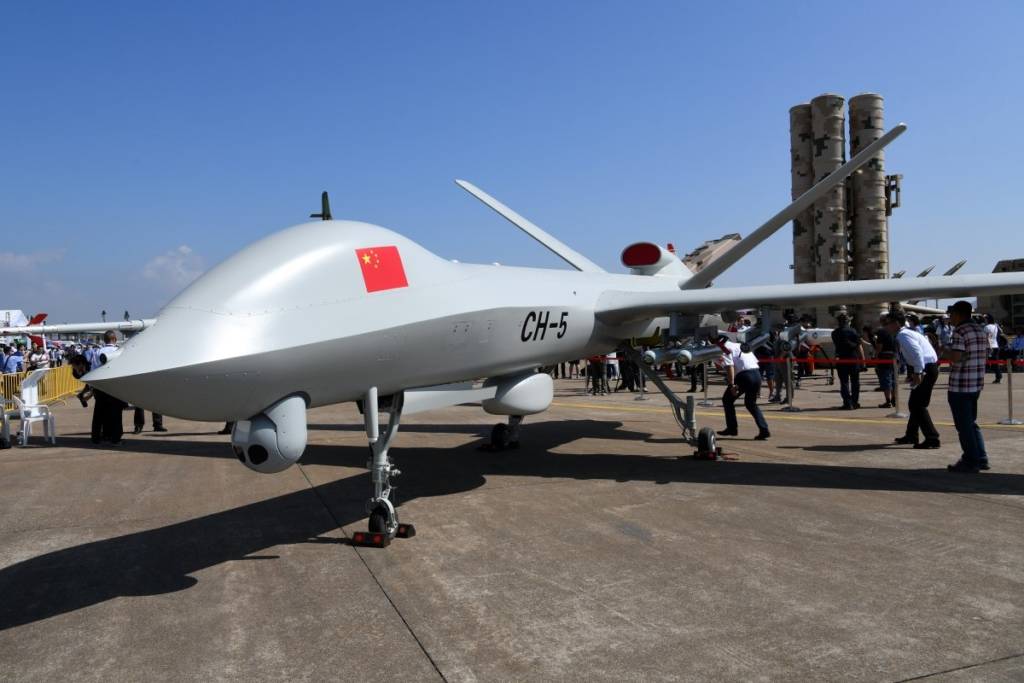Off late, arms exports of China, the world’s second largest defence exporter, have taken off in a big way. As per data from the Stockholm International Peace Research Institute (SIPRI) published in March, the country has become one of the five top weapons exporters of the world joining ranks with the likes of the US, France, Germany and Russia over the past five years. Over the past ten years, the dragon has exported 16.2 billion units of ammunition, mostly to Asian, Middle East and African countries over the past 12 years.
While China continues to grow in terms of armaments exports, claiming to produce low cost defence products with cutting edge defence technology, the fact remains that what it has indeed been selling is substandard defence products. A senior State Department official has told potential foreign buyers not to buy American weapons and not low-quality Chinese armaments that risk killing your enemy but also your own military personnel. R. Clarke Cooper, Assistant Secretary of State for Political-Military Affairs said the United States hands out some 10 billion US Dollars in security and defence grants to allies across the globe, but China is using tactics like cut-rate pricing, predatory financing and bribery to muscle in on the weapons market in a bid to weaken the US clout.
Speaking with ambassadors and military attaches during a meeting at the Meridian International Centre, a diplomacy group, Cooper said, “Choosing the United States as a security partner remains far and away the best choice for nations around the world.” Cooper further exposed how the Chinese is using arms exports to exert influence in other countries. He said, “China is using arms transfers as a means of getting its foot in the door – a door that, once is opened, China quickly exploits both to exert influence and to gather intelligence.”
Cooper referred to the infamous case of Norinco VN-4 armoured personnel carriers, which Kenya purchased from China. He said that the Chinese sales representative refused to sit in the vehicles during a test firing. Kenya went ahead with the acquisition in 2016 anyway. Cooper said, “sadly dozens of Kenyan personnel have been reportedly killed in those vehicles.” The official also quoted an editorial published in Kenya’s The Standard newspaper, which read, “It is saddening that even after such deaths, our officers continue to patrol the border on pickup trucks and sham Chinese-made armoured personnel carriers, despite the omnipresent danger of running over IEDs.”
Cooper sounded a warning for the potential foreign buyers quoting a Latin maxim, “Caveat emptor!”, that is, “buyer beware”. He also cited the example of CH-4 armed drones that was purchased by customers in the Middle East region. The drones broke within months, with customers “now turning around to get rid of them”. The US State Department official also turned his attention to training and after-service care. He claimed that countries buying weapons from the US are able to send their military personnel to the US International Military Education and Training programme, where they get “world class” schooling as their American counterparts. However, he pointed out that this is not the case with China, where the foreign trainees may be lumped in with low quality officers with from across the globe in China’s International Military Education Exchange Centre. One again citing the maxim “Caveat emptor!”, he said the facility’s “lackadaisical approach to military education is well below the standard China provides to its own officers.”
The poor quality of the Chinese defence products and miserable after-sales training is the reason why developed nations are not buying products. Last year, China failed to secure any takers for its JF-17 fighters though its officials negotiated really hard to secure deals for the fighter aircraft during an air show in South Africa in September 2017. As stated earlier, its products have found bulk of its purchasers in Africa, Asia and the Middle East. Around 35% of the dragon’s armament exports went to Pakistan between 2013 and 2017, followed by Bangladesh which purchased 19% of its supplies. In fact, Dhaka procured 71% of its defence products from China over the five year period. Myanmar also provided 68% of its defence products from China. Pakistan which has been battling US aid cuts, also witnessed a rise in its Chinese arm imports from 45% of its total weapons to 70% of its weapons.
The issue of substandard Chinese defence equipment has come up time and again, with some rather embarrassing incidents of malfunctioning of Chinese weapons, when the Cameroon regime has refused to purchase four brand new Chinese attack helicopters, one of them crashed shortly after delivery, leading to an apparent freeze on the acquisitions. Another embarrassing incident took place when two Chinese made C-705 missiles, launched from two KCR-40 attack ships failed to hit their targets during an Indonesian naval exercise in the year 2016. What made it that much more embarrassing is the fact that the incident took place in the presence of Indonesian President Joko Widodo.
Due to lack of competitors, the low quality and low cost Chinese weapons remain a big hit with warlords, rebel groups and militias around the world. Chinese anti aircraft missiles have been spotted in the hands of South Sudanese government troops. Pakistan too has become a major market for Chinese defence equipment, with 63% of its arms received by the Islamic Republic of Pakistan. Pakistan has in fact become a testing ground for the Chinese weapons, which are a result of reverse engineering, stolen designs, etc. Chinese weapons are not battle tested and no one knows if they really work.
The Chinese defence equipment has consistently proved itself to be substandard and this coincides with its emergence as a top defence exporter. The world at large, and especially the potential foreign buyers must remain cautious of its low quality products, in order to secure their own interests when it comes to acquisition of armaments
